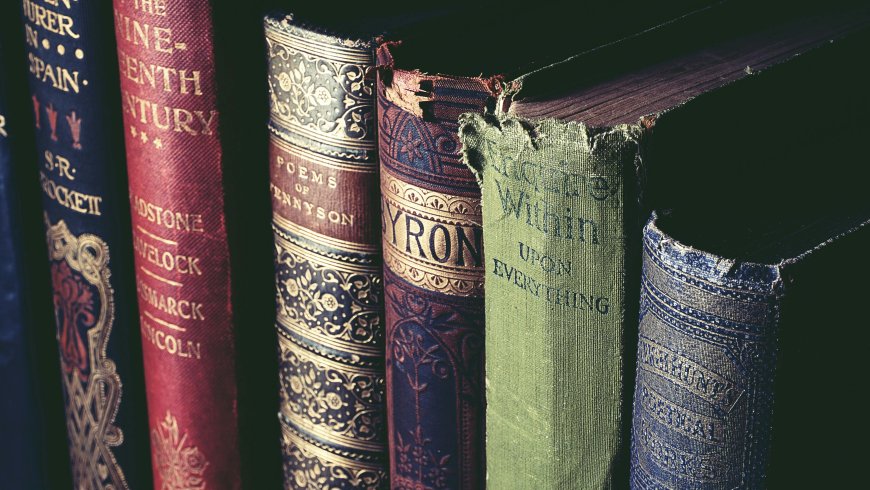Famous Authors Who Influenced Literature
From Shakespeare to Toni Morrison, explore the famous authors who transformed literature and shaped the way we read and think today.

Great literature is timeless. It survives wars, revolutions, and shifting cultures, carrying human voices across centuries. From plays that shook Elizabethan England to novels that exposed social injustice in America, authors have not only told stories but also transformed the way society thinks, dreams, and questions power.
These literary giants shaped more than just bookshelves — they shaped modern thought, culture, and identity.
William Shakespeare: The Eternal Playwright
No list of influential authors is complete without William Shakespeare. Writing in the late 16th and early 17th centuries, he redefined English drama and poetry.
His plays — from Hamlet to Macbeth — explored timeless themes of ambition, love, betrayal, and fate. But Shakespeare’s influence is broader than literature; his language enriched the English vocabulary, and his stories continue to inspire film, theater, and even modern television.
Shakespeare proved that literature could mirror the complexities of the human soul.
Jane Austen: A Voice for Women and Society
In an age when women were rarely recognized as writers, Jane Austen carved her name into history. Her novels, including Pride and Prejudice and Sense and Sensibility, combined sharp social commentary with romance.
Austen’s subtle humor and keen observations on class, gender, and marriage gave women’s voices new visibility in literature. Today, she is celebrated not only for her style but also for paving the way for future female writers.

Charles Dickens: Champion of the Poor
In 19th-century England, Charles Dickens became the voice of the working class. His novels — such as Oliver Twist and A Christmas Carol — exposed child labor, poverty, and corruption.
Through unforgettable characters and vivid storytelling, Dickens influenced public opinion and even inspired social reforms. He reminded readers that literature could be more than entertainment — it could be a force for justice.
Leo Tolstoy: The Philosopher Novelist
Russian author Leo Tolstoy wrote epics like War and Peace and Anna Karenina, exploring the struggles of love, war, and morality. Beyond his novels, Tolstoy’s philosophy of nonviolent resistance deeply influenced political leaders such as Mahatma Gandhi and Martin Luther King Jr.
His writing demonstrated how literature could transcend fiction and shape real-world movements.
George Orwell: Voice Against Oppression
Few authors have captured the dangers of totalitarianism as powerfully as George Orwell. His works Animal Farm and 1984 remain essential warnings about censorship, propaganda, and political control.
Phrases like “Big Brother” and “thoughtcrime” have entered everyday language, proving Orwell’s unmatched cultural influence. His vision of freedom versus oppression continues to resonate in today’s digital age.

Toni Morrison: Telling Untold Stories
A Nobel Prize-winning author, Toni Morrison gave voice to African American experiences long overlooked in mainstream literature. Novels like Beloved and Song of Solomon explored themes of race, identity, and memory with poetic brilliance.
Morrison not only reshaped literature but also challenged readers to confront uncomfortable truths about history and society. She stands as a beacon for writers who use storytelling to reclaim erased voices.
Gabriel García Márquez: Master of Magical Realism
Colombian writer Gabriel García Márquez transformed world literature with his unique style known as magical realism. His masterpiece One Hundred Years of Solitude blended history, myth, and imagination to capture the soul of Latin America.
Márquez’s work showed that literature could defy conventional boundaries, merging the fantastic with the ordinary to reveal deeper truths about humanity.
Why Authors Still Matter
In an age of social media and instant news, one might ask: Do authors still hold the same power they once did? The answer is yes. Literature remains a space where ideas can challenge authority, heal divisions, and inspire future generations.
From Shakespeare’s stage to Morrison’s novels, these authors shaped not only what we read but how we think about the world. Their legacies live on every time a reader turns a page and discovers a new perspective.
FAQs
Q1: Who is considered the most influential author in history?
A1: William Shakespeare is often regarded as the most influential author due to his lasting impact on language and storytelling.
Q2: Which author shaped social reform through literature?
A2: Charles Dickens influenced reforms by highlighting poverty and child labor in 19th-century England.
Q3: Who pioneered magical realism in literature?
A3: Gabriel García Márquez popularized the genre with One Hundred Years of Solitude.
Q4: Why is George Orwell still relevant today?
A4: His works warn against political control, propaganda, and loss of privacy, themes still pressing in the digital age.
Q5: Which author gave voice to marginalized communities?
A5: Toni Morrison amplified African American experiences and reshaped modern literature.
আপনার প্রতিক্রিয়া কী?
 পছন্দ
0
পছন্দ
0
 অপছন্দ
0
অপছন্দ
0
 ভালোবাসা
0
ভালোবাসা
0
 মজার
0
মজার
0
 রাগান্বিত
0
রাগান্বিত
0
 দুঃখজনক
0
দুঃখজনক
0
 বাহ
0
বাহ
0



























































